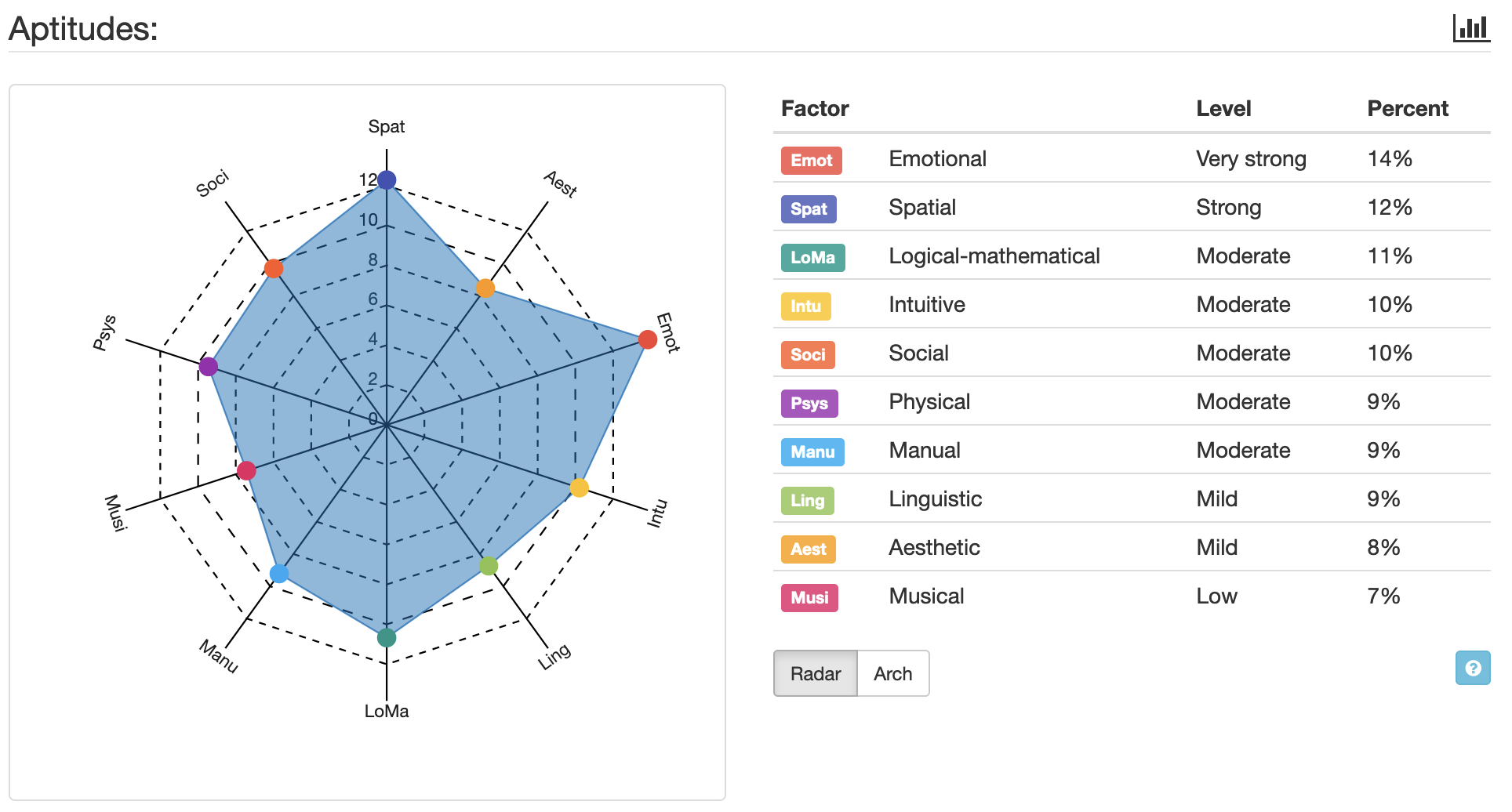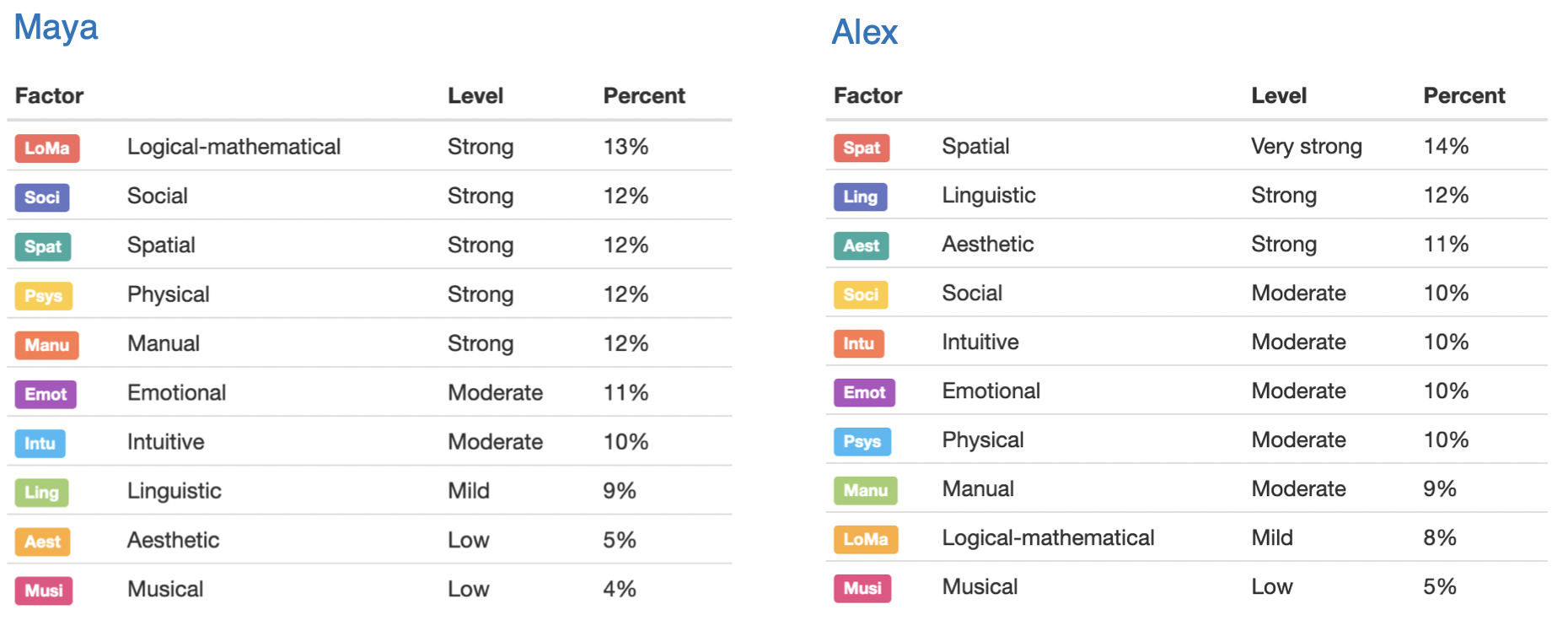Kompetenssit
Competencies, while based on the personality, aptitudes, motives and interests of the individual, are such features and strengths of an assessed person that may have differential relevance for well-being, success and development at work in different sectors and professions.
Competency, a fundamental concept in various fields, encompasses a diverse array of skills, knowledge, abilities, and behaviors that individuals possess and utilize to achieve success in specific roles or tasks. From professional settings to personal endeavors, competency serves as a cornerstone for performance excellence and continuous growth.
At its core, competency reflects the capacity to effectively apply acquired knowledge and skills to accomplish objectives and address challenges. It goes beyond mere technical proficiency to encompass broader dimensions such as problem-solving, adaptability, communication, leadership, and teamwork.
Psychological Competency
Emotional competency, in particular, plays a significant role in personal and professional success. Individuals with high emotional competency demonstrate a keen understanding of their own emotions and behaviors, as well as those of others. They possess the ability to regulate their emotions effectively, communicate assertively, build rapport, resolve conflicts constructively, and adapt to changing circumstances.
Competency serves as a multifaceted framework for assessing and developing individual capabilities across various domains. While technical expertise remains important, behavioral, managerial, cultural, and psychological competencies are equally crucial for success in today’s complex and dynamic world. By recognizing the importance of psychological competency and actively cultivating it, individuals can unlock their full potential and achieve meaningful personal and professional growth.
For instance, developing emotional competence involves self-reflection, self-awareness, and continuous learning. It requires individuals to cultivate emotional intelligence, enhance their communication skills, and practice empathy and active listening. By investing in the development of emotional competence, individuals can enhance their interpersonal relationships, navigate challenges with resilience, and thrive in diverse social and professional contexts.
Individuals with different dominant competencies may excel in different roles and tasks. For example, someone with high linguistic competence might thrive in roles that involve writing, communication, public speaking and foreign languages, while someone with strong logical-mathematical competence might excel in analytical or research-based roles. Recognizing and leveraging employees’ diverse competencies can lead to more effective team dynamics, improved problem-solving abilities, and greater overall productivity in the workplace.
Mindfindr Competencies
The term competence has various, somewhat overlapping definitions. In a general sense, being competent or having competence means that a person does something well when judged by relevant criteria. Hierarchically different practical competencies may be categorized starting from very general down to concrete skills. Considered analytically, abstract competencies related to knowledge and command of theories may be seen as different from practical competencies, that is, skills.
In Mindfindr reports the term competence (or competency) refers to different skills, abilities and resources that are based on natural personal aptitudes and traits of a person and that enable the individual to implement certain practical tasks. Usually people are to an extent aware of their strongest competencies and aim to put them into a profitable professional use and further develop those strengths.
Usually it is possible to measure and evaluate the level of the ability component in a competence using psychological tests. This is especially feasible where mathematical-logical, linguistic and spatial-perceptual competencies are concerned.
The Mindfindr competence framework describes the relative strengths of respondents competencies. To facilitate the interpretation of the report results by the respondent the relative contributions of different competencies in the overall model are given in percentage points along with illustrative graphs. The total sum of the competencies is thus 100 percent. A respondent may consider the relative strengths of his or her individual competencies. The competencies whose values are over 10 percent are relative strengths, while those below are areas potentially in need of improvement, especially if they are crucial with regard to the person’s academic and professional goals.
Verbal ratings of competencies set them into a more general frame of reference. The respondent might profit from putting to a profitable use the competencies that are rated as “Strong” or “Very strong”, as they are statistically stronger than average.
The Mindfindr competencies may be concisely defined as follows:
- Logical-mathematical competence describes a person’s ability to make logical inferences, solve mathematical problems and draw sound conclusions.
- Linguistic competence refers to verbal fluency, writing abilities, language skills and an interest in learning foreign languages
- Spatial-perceptual competence shows in a person’s ability to solve 3D problems, figure out structures and orient in nature and built environments
- Social competence refers to interpersonal skills and a capacity to make friends and get along with different kinds of people
- Emotional competence covers an ability to understand and make use of one’s own and others’ emotions and nonverbal skills
- Physical competence refers to physical strength, good muscular coordination and endurance under physical strain
- Dexterity competence refers to motor skills, good eye-hand coordination and an ability to perform manual operations swiftly upon perceptions
- Intuitive competence covers innovativeness, insightfulness and an ability to find creative solutions to problems in new situations
- Aesthetic competence embodies having an eye for beauty, a good judgment of forms and colors and skills to produce such things
- Musical competence entails having an exceptionally good sense of rhythms and pitches of sounds or an ability to compose music

Case: Strategic sales strategy improvement
Company Acme, a multinational corporation specializing in technology solutions, is seeking to expand its client base and increase revenue through a strategic sales development initiative. Two sales managers, Alex and Maya, are tasked with leading separate teams to drive this effort.

Alex, known for his strong linguistic competency, excels in communication and persuasion. He strategically utilizes language to articulate the value proposition of Company Acme’s products and services to potential clients. Alex crafts compelling sales pitches and presentations that resonate with diverse audiences, tailoring his messaging to address their specific needs and pain points. His linguistic prowess allows him to establish rapport quickly, build trust, and foster long-term relationships with clients.
On the other hand, Maya, renowned for her logic-mathematical competency, approaches sales development from an analytical perspective. She leverages data-driven insights and market research to identify opportunities, assess market trends, and formulate sales strategies. Maya meticulously analyzes sales metrics, financial projections, and competitor data to make informed decisions and optimize sales performance. Her logical reasoning and problem-solving skills enable her to develop innovative pricing models, negotiate contracts, and maximize profitability for the company.
In this scenario, Alex’s linguistic competency enhances his ability to communicate effectively and build relationships with clients, driving engagement and customer loyalty. Meanwhile, Maya’s logical-mathematical competency enables her to analyze complex data sets, identify patterns, and make strategic decisions that drive sales growth and profitability. Together, their complementary competencies contribute to the success of the company’s sales development initiative, demonstrating the importance of leveraging linguistic and logic-mathematical competencies in achieving organizational objectives.